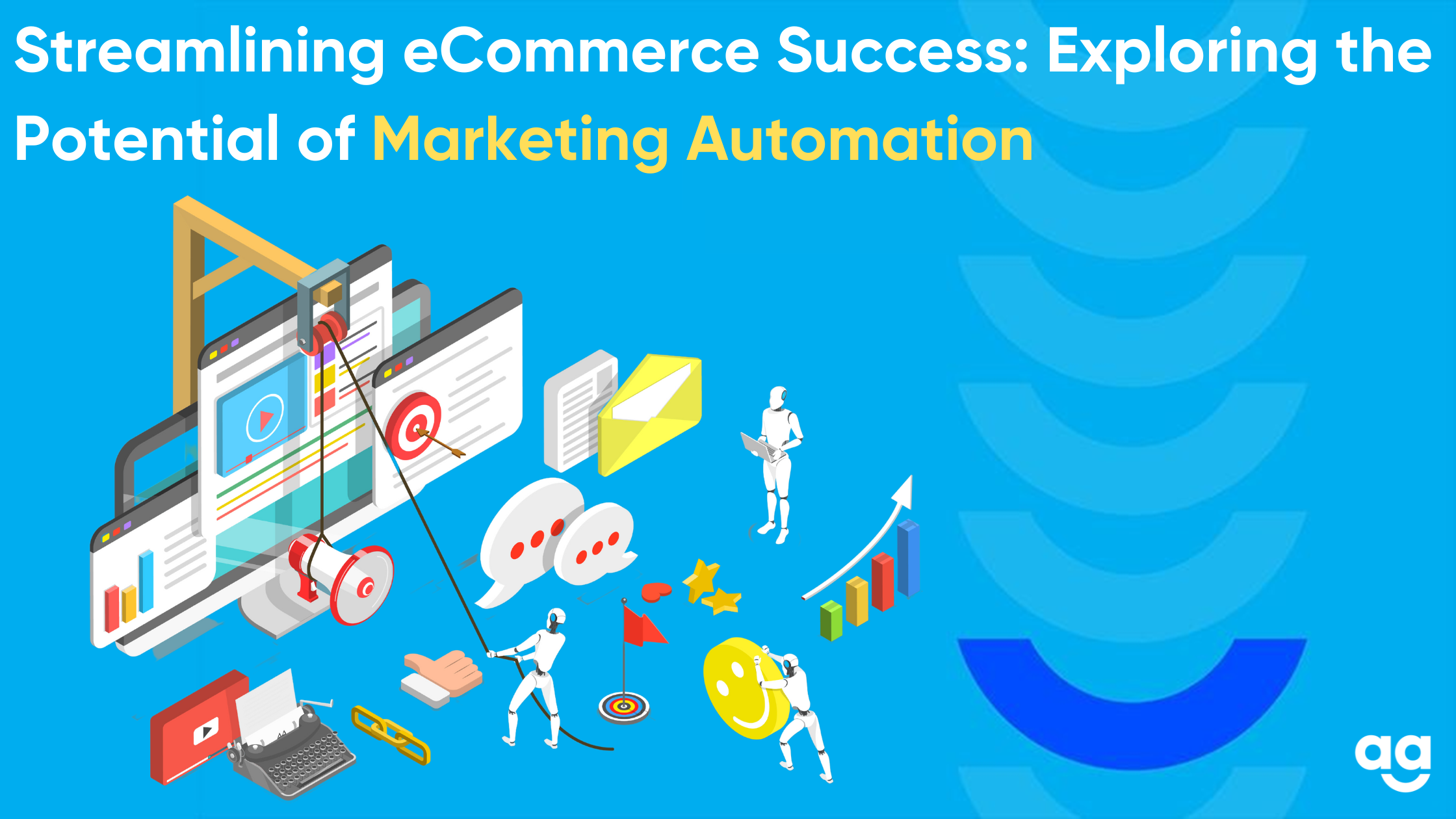Introduction
In the fast-paced world of eCommerce, staying ahead of the competition and achieving success requires efficient and effective marketing strategies. Marketing automation has emerged as a game-changer, revolutionizing the way businesses engage with customers, nurture leads, and drive conversions.
This article explores the potential of marketing automation in streamlining eCommerce success, providing you with the tools to automate repetitive tasks, deliver personalized experiences, and optimize marketing efforts.
What is Marketing Automation?
Marketing automation refers to the use of software and technologies to automate marketing tasks and workflows. It streamlines repetitive processes such as email marketing, lead nurturing, social media management, and customer segmentation. By automating these tasks, you can save time, improve efficiency, and deliver targeted messages to their audience.
Benefits of Marketing Automation
Time and Resource Efficiency:
Marketing automation eliminates the need for manual execution of repetitive tasks, allowing you to save time and allocate resources more effectively. Automated workflows, such as email campaigns or social media scheduling, can be set up in advance, freeing up valuable time for strategic planning and analysis.
Personalized Customer Experiences:
With marketing automation, you can deliver personalized messages to your audience based on their preferences, behavior, and interactions. By segmenting customers and tailoring content accordingly, you can provide a more relevant and engaging experience, increasing customer satisfaction and loyalty.
Lead Nurturing and Conversion Optimization:
Marketing automation enables you to nurture leads throughout the buyer’s journey. Automated workflows can be designed to deliver targeted content, such as educational resources, product recommendations, or exclusive offers, based on customer behavior and interests. This personalized approach helps move leads closer to conversion and improves overall conversion rates.
Data-Driven Decision Making:
Marketing automation provides you with valuable data and insights into customer behavior, campaign performance, and ROI. By analyzing this data, you can make informed decisions, optimize marketing strategies, and identify areas for improvement.
Implementing Marketing Automation in eCommerce
Building Customer Segmentation
Effective marketing automation relies on customer segmentation. You should analyze customer data, such as demographics, purchase history, and engagement levels, to create targeted segments.
This segmentation allows for the delivery of personalized messages and tailored campaigns, maximizing the impact of marketing efforts.
Setting Up Automated Workflows
Automated workflows are the backbone of marketing automation. These workflows consist of a series of predefined actions triggered by specific events or customer behavior. For example, a welcome email can be automatically sent to new subscribers, followed by a series of emails introducing the brand, showcasing products, and offering incentives to make a purchase.
Automated workflows can also be used for cart abandonment reminders, post-purchase follow-ups, and re-engagement campaigns.
Email Marketing Automation
Email marketing automation is a fundamental aspect of eCommerce marketing automation. You can leverage automation tools to send targeted and personalized emails at different stages of the customer journey.
Automated emails can include welcome emails, product recommendations, abandoned cart reminders, order confirmations, and post-purchase feedback requests. By utilizing automation, you can increase email open rates, click-through rates, and conversions.
Personalization and Dynamic Content
Personalization is key to successful marketing automation in eCommerce. Dynamic content allows you to customize email content based on customer attributes or behavior. For example, product recommendations can be dynamically generated based on a customer’s browsing or purchase history.
By delivering relevant and tailored content, you can enhance customer engagement and drive conversions.
Best Practices for eCommerce Marketing Automation
Optimize for Mobile
In the mobile-centric eCommerce landscape, it is crucial to ensure that marketing automation efforts are optimized for mobile devices. Mobile-friendly email templates, responsive landing pages, and seamless mobile browsing experiences contribute to a positive user experience and higher conversion rates.
Test, Analyze, and Refine
Continuous testing and analysis are essential for optimizing marketing automation campaigns. A/B testing different email subject lines, content variations, and call-to-action buttons can provide valuable insights into what resonates best with the audience.
Analyzing key metrics such as open rates, click-through rates, conversion rates, and customer behavior helps identify areas for improvement and refine strategies.
Integration with eCommerce Platforms and CRM Systems
Integrating marketing automation tools with eCommerce platforms and customer relationship management (CRM) systems is crucial for seamless data exchange and synchronization. This integration enables you to track customer interactions, monitor purchase history, and automate actions based on specific triggers, such as abandoned carts or purchase milestones.
Conclusion
Marketing automation has transformed the eCommerce landscape, providing you with the tools to streamline processes, deliver personalized experiences, and optimize marketing efforts. By leveraging marketing automation, you can save time, improve efficiency, and provide tailored experiences that enhance customer engagement and drive conversions.
By implementing effective segmentation, setting up automated workflows, and utilizing personalization, you can unlock the full potential of marketing automation to streamline eCommerce success. With continuous testing, analysis, and integration with eCommerce platforms and CRM systems, you can stay ahead of the competition and achieve long-term growth in the dynamic world of eCommerce.





 Shipping
Shipping